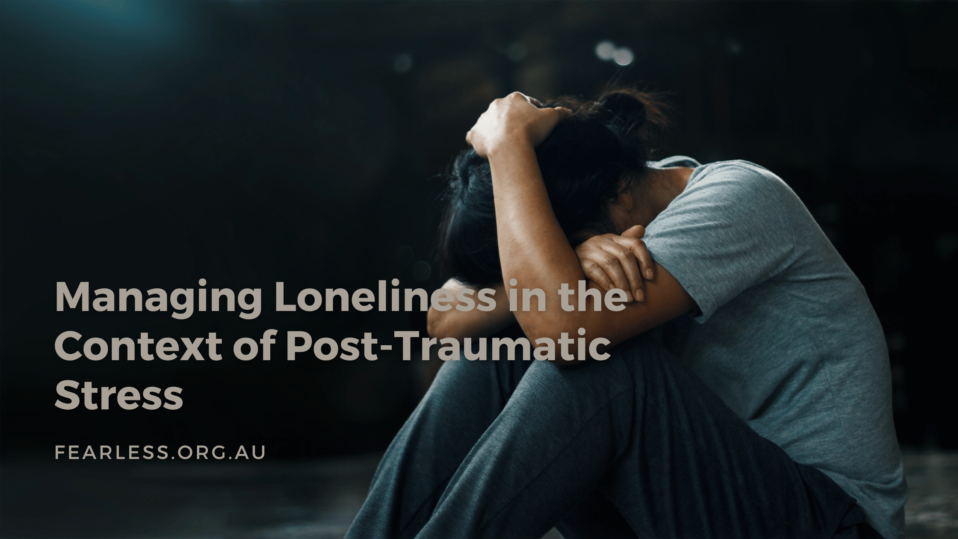Experiencing post-traumatic stress (PTS) can often lead to feelings of isolation and loneliness. Understanding and addressing these feelings is crucial for mental health and recovery. Here’s how you can navigate loneliness while managing PTS.
Understanding Loneliness and PTS
Loneliness is a complex emotional state where one feels disconnected from others, even when surrounded by people. For those with PTS, this disconnection can feel more intense, as the trauma might lead to withdrawal from social interactions and relationships.
The Impact of Loneliness on Mental Health
Loneliness can exacerbate symptoms of PTS, such as anxiety, depression, and hypervigilance. It can create a vicious cycle where the symptoms of PTS lead to further isolation, which in turn worsens the mental health condition.
Strategies to Combat Loneliness
1. Seek Professional Help
Engaging with mental health professionals who specialize in trauma can provide you with the tools and techniques to manage PTS and feelings of loneliness. Therapy can help you process trauma and develop healthier coping mechanisms.
2. Build Support Networks
Connecting with others who understand your experiences can be incredibly beneficial. Support groups, whether in-person or online, can offer a sense of community and understanding. Fearless provides various resources and support networks for individuals dealing with PTS.
3. Practice Self-Compassion
Being kind to yourself is essential. Understand that it’s okay to feel lonely and that these feelings do not define your worth. Practicing mindfulness and self-care can help you stay grounded and reduce the impact of loneliness.
4. Engage in Meaningful Activities
Finding hobbies or activities that you enjoy can help distract your mind from negative thoughts and provide a sense of accomplishment and purpose. Whether it’s painting, hiking, or reading, engaging in activities can help improve your mood.
5. Reconnect with Loved Ones
Reaching out to family and friends, even if it’s difficult, can help rebuild connections. Start with small steps, like sending a message or scheduling a short visit. Letting others know about your experiences can foster understanding and support.
The Role of Pets in Reducing Loneliness
Pets can provide companionship and unconditional love, which can be incredibly comforting for those experiencing PTS. They offer a sense of responsibility and routine, which can be grounding and provide a distraction from negative thoughts.
Loneliness is a significant issue for those dealing with post-traumatic stress, but it’s important to remember that help and support are available. By seeking professional help, building support networks, practicing self-compassion, engaging in meaningful activities, and reconnecting with loved ones, you can take steps to combat loneliness and improve your mental health.
About FearLess
FearLess is a charity that works with people living with the consequences of post traumatic stress (often referred to as PTSD). We also help family members in any way affected by it. Our community members come from all walks of life including those living with PTSD and their families or people who want to do their bit to make the lives of people living with post traumatic stress more enjoyable and fulfilling. Our work complements the activities of other community-based organisations and government agencies that provide services to people with post traumatic stress.
This website has been established to provide information about PTSD to the Australian and New Zealand community. The website’s content is not intended to be a substitute for professional medical advice, diagnosis or treatment. You should seek the advice of an appropriately qualified healthcare professional before making decisions about your own circumstances. You should not disregard professional medical advice, or delay seeking it, because of any information contained on this website.



Post a comment